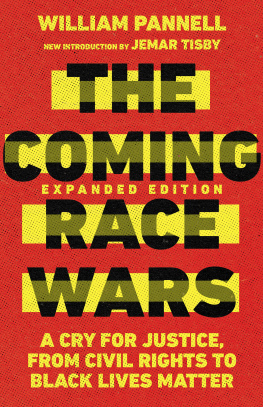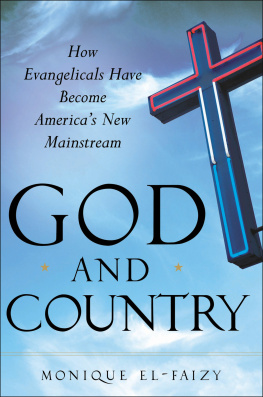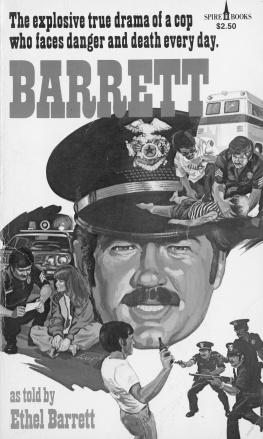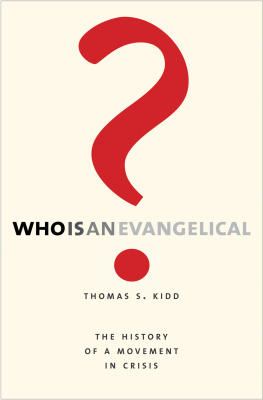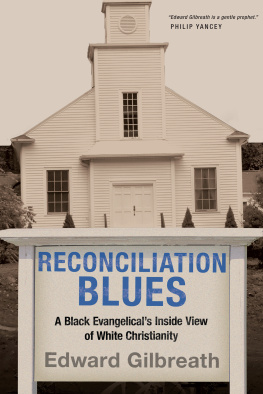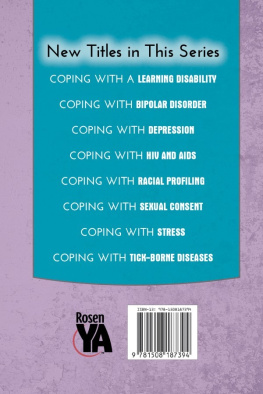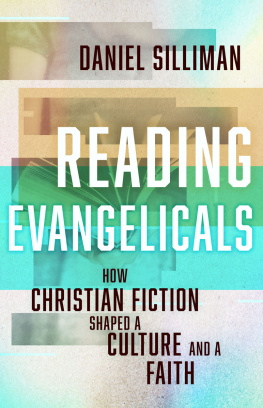Divided by Faith
Divided By Faith
Evangelical Religion and the Problem of Race in America
Michael O. Emerson Christian Smith


Oxford New York Athens Auckland Bangkok Bogot Buenos Aires
Cape Town Chennai Dar es Salaam Delhi Florence Hong Kong Istanbul
Karachi Kolkata Kuala Lumpur Madrid Melbourne Mexico City Mumbai
Nairobi Paris So Paulo Shanghai Singapore Taipei Tokyo Toronto Warsaw
and associated companies in
Berlin Ibadan
Copyright 2000 by Michael O. Emerson and Christian Smith
First published by Oxford University Press, Inc., 2000
First issued as an Oxford University Press paperback, 2001
198 Madison Avenue, New York, New York 10016
Oxford is a registered trademark of Oxford University Press
All rights reserved. No part of this publication may be reproduced, stored in a retrieval system, or transmitted, in any form or by any means, electronic, mechanical, photocopying, recording, or otherwise, without the prior permission of Oxford University Press.
Library of Congress Cataloging-in-Publication Data
Emerson, Michael O., 1965
Divided by faith : evangelical religion and the problems of race
in America / Michael O. Emerson, Christian Smith.
p. cm.
Includes bibliographical references and index.
ISBN-13 978-0-19-514707-0 (Pbk.)
1. Race relationsReligious aspectsChristianity.
2. United StatesRace relations.
3. EvangelicalismUnited States.
I. Smith, Christian (Christian Stephen), 1960
II. Title.
BT734.2.E48 2000
261.834800973dc21 00-036743
12 13 14 15 16 17 18 19 20
Printed in the United States of America

To Joni, my love.
M.O.E.
For Stan, who helped start all of this.
C.S.S.

Contents
Introduction
Religion and the Racialized Society
2 From Separate Pews to Separate Churches
Evangelical Racial Thought and Practice, 1700-1964
3 Becoming Active
Contemporary Involvement in the American Dilemma
4 Color Blind
Evangelicals Speak on the Race Problem
5 Controlling Ones Own Destiny
Explaining Economic Inequality Between Blacks and Whites
6 Lets Be Friends
Exploring Solutions to the Race Problem
8 Structurally Speaking
Religion and Racialization
Preface
To learn more about American life, this book examines the role of white evangelicalism in black-white relations. Our argument is that evangelicals desire to end racial division and inequality, and attempt to think and act accordingly. But, in the process, they likely do more to perpetuate the racial divide than they do to tear it down. We base our argument on historical analyses of the movement and race relations, a national survey and hundreds of face-to-face interviews with contemporary evangelicals and other Americans, and an examination of the role that the structure of U.S. religion plays in racial division and inequality.
We have taken it as our charge to tell as honest, accurate, rigorous, and enlightening a tale about our topic as possible. In so doing, we were led to move beyond the old idea that racial problems result from ignorant, prejudiced, mean people (and that evangelicals are such people). This is simply inaccurate, and does not get us far in trying to understand why racial division in the United States persists. We also move beyond the idea that race issues continue merely because dominant groups attempt to consciously defend their economic privilege. Instead, we explore the ways in which culture, values, norms, and organizational features that are quintessentially evangelical and quintessentially American, despite having many positive qualities, paradoxically have negative effects on race relations.
Michael Emerson principally authored this book, so any shortcomings in the book are principally his. For all that is positive about this work, but none that is negative, we wish to thank the many people and institutions who contributed in a myriad of ways to this project. We must thank the thousands of people who agreed to telephone interviews, and the hundreds of people around the country who allowed us to come to their homes for interviews. We are truly appreciative. A grant from the Pew Charitable Trusts afforded us the resources to interview people, meet together as a research team, and reduce our teaching loads, providing us time to write. We thank Joel Carpenter for his vision, expert assistance, and support of this project. Further, we thank Bethel College, Rice University, and the University of North Carolina. We also extend our appreciation to our department colleagues. They supported the writing of this work with their encouragement, especially Jim Hurd and Harley Schreck, who had to work more so that this book could be written. They are true friends.
A special thank-you to the Pew Young Scholars, led by Wade Clark Roof, and the Center for the Study of Religion and American Culture. They not only encouraged this project, but were willing to critique its earlier forms as well.
Many people have contributed by commenting on portions of this book, including Patricia Chang, Roger Finke, Stephen Hart, and Mark Noll. We are thankful for their sharp readings and helpful suggestions. Others contributed to the overall argument of the book, especially Sally Gallagher, Paul Kennedy, Dan Olson, Mark Regnerus, and Johan Sikkink. Their input was much needed. We also appreciate the assistance and advice of our editor, Cynthia Read.
Two research assistantsRobyn Minahan and Rachel Laustsendid wonderful work tracking down sources, making phone calls, looking up information, and other tasks too numerous to mention. Their work was invaluable. So too was the work of Chelsea DeArmond, who put this manuscript into readable form and gave us helpful stylistic assistance.
This book could not have been written without the expertise and time of Tim Essenberg, Leo Gabriel, Greg Keath, Karen McKinney, and Scottye Holloway and the great people of Ambassadors. We are grateful for your wisdom, spirit of friendship, and willingness to cross barriers. You have taught far more than you can know.
Our families are most important of all. Thank-you to our extended families: Mom, Dad, Rick and Karin, and Ann. Our very biggest thank-you to our immediate families: Joni, Anthony, Josiah, Leah, Sophia; Emily, Zachary, Erin, and Caroline. Thank you for keeping us focused on the right priorities, and for your love.
Houston, TX | M.O.E. |
August 1999 | C.S.S. |
Divided by Faith
Introduction
Religion and the Racialized Society
I do not imagine that the white and black race will ever live in any country upon an equal footing. But I believe the difficulty to be still greater in the United States than elsewhere. An isolated individual may surmount the prejudices of religion, of his country, or of his race, and if this individual is a king he may effect surprising changes in society; but a whole people cannot rise, as it were, above itself. A despot who should subject the Americans and their former slaves to the same yoke, might perhaps succeed in commingling their races; but as long as the American democracy remains at the head of affairs no one will undertake so difficult a task; and it may be foreseen that the freer the white population of the United States becomes, the more isolated will it remain
Next page

